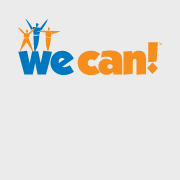We Can!® and National Childhood Obesity Awareness Month

Podcast Transcript
Right Click to Download MP3 File (3.5 MB)
(3.5 MB)
Brief Description:
September is not only back-to-school time, it also is National Childhood Obesity Awareness Month. The We Can! science-based education program gives parents, caregivers, and entire communities a way to help children 8 to 13 years old stay at a healthy weight.
Transcript:
Balintfy: Obesity is a devastating public-health crisis for the United States. And then there are the hard-to-believe statistics of the epidemic on children.
Donato: Over the past 30 years, prevalence of childhood obesity has more than doubled among children ages 2-5; it’s tripled among youth ages 6-11, and has more than tripled among adolescents and teens ages 12-19.
Balintfy: That’s Karen Donato. She's Coordinator of Overweight and Obesity Research Applications in the Division for the Application of Research Discoveries at the National Heart, Lung, and Blood Institute. She adds that current data show that 17 percent of children ages 2-19 years are obese.
Donato: We also know that these children who are overweight or obese are at high risk of become obese as adults; and as obesity increases in adults, adults are at increased risk of heart disease, high blood pressure, type 2 diabetes, certain types of cancers and other really serious chronic conditions.
Balintfy: She says awareness about childhood obesity is critical.
Donato: We feel that awareness is really the first step in solving this problem of childhood obesity. The launch of the First Lady’s Let's Move campaign actually has garnered more attention to the issue. September is marking National Childhood Obesity Awareness Month, and we really have an opportunity to reinforce the message that childhood obesity is a serious national problem.
Balintfy: Donato explains that parents and caregivers are the primary influencers for children ages 8-13, and can help children lead healthier lives, especially now during back to school time.
Donato: We'd like to provide parents with some ideas to think about ways to promote healthy choices not only for their children but for the whole family. And when you’re planning lunches not only for your children but for yourself — perhaps going off to work — there are some simple ideas that you could put healthy twists on things. One popular one is this inside-out sandwich where you actually use lettuce instead of bread. And you use the lettuce to wrap the turkey and the cheese and you make your sandwich out of that.
Balintfy: For more tips, Donato points to the education program called We Can!
Donato: We Can! stands for Ways to Enhance Children's Activity & Nutrition, and it is science-based education program from the National Institutes of Health. And it has been really designed to give parents, caregivers, and even entire communities a way to help children 8 to 13 years old stay at a healthy weight.
Balintfy: She explains that We Can! has three key objectives: improving food choices, increasing physical activity, and reducing screen time.
Donato: It is also really important though, in addition to eating even right, that parents really begin to plan and schedule time for the whole family to become physically active. It’s recommended that children get at least 60 minutes of physical activity each and every day. And it’s also kind of difficult with parents with busy schedules to make sure that happens. And another way of increasing physical activity is again, making sure you’re limiting the time spent in front of the TV or the computer or the video games because we know that kind of sedentary time is also associated with an increase in weight.
Balintfy: Donato reports that We Can! has grown into a national movement with more than 1,300 community sites in all 50 states. For specific strategies and tips, as well as resources for communities, visit the website wecan.nhlbi.nih.gov or call toll free 1-866-35-WE-CAN. Again visit wecan.nhlbi.nih.gov, or call 1-866-35-WE-CAN. This is Joe Balintfy, National Institutes of Health, Bethesda, Maryland.










